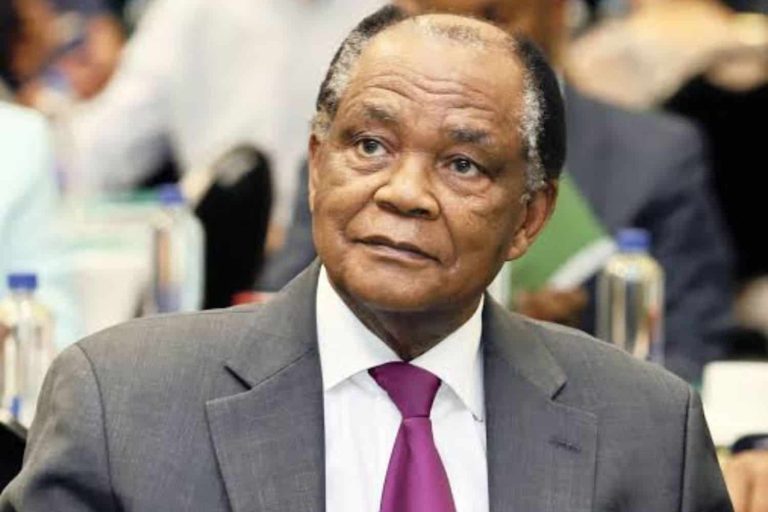
Senior Advocate of Nigeria, Dr Monday Ubani, has said that President Bola Tinubu’s recent comments on judicial reform are encouraging but insufficient without clear timelines, measurable targets and a structured plan to overhaul Nigeria’s slow and overstretched justice system.
Speaking In an interview with ARISE NEWS on Tuesday, Ubani said the president touched on many long-standing problems in the judiciary funding, welfare, digitisation, infrastructure and administrative independence but stressed that Nigerians are tired of promises without implementation.
“These are right statements that the president has made. One of the things that actually struck me is making a right statement on unwavering commitment, good intent and identifying the problems.”
He noted that Tinubu deserves credit for breaking a 16-year deadlock by approving the upward review of judges’ salaries and allowances. “President Tinubu deserves credit for breaking a 16-year deadlock by approving the upward review of judges’ salaries and allowances. But welfare improvements alone cannot fix the structural inefficiencies in the system. The judiciary is still suffering because there is no performance framework compelling courts, agencies and ministries to work within defined goals.”
Ubani argued that the justice sector must adopt measurable timelines, especially in reducing case backlogs, digitising court processes and modernising administrative operations. “The justice sector must adopt measurable timelines, especially in reducing case backlogs, digitising court processes and modernising administrative operations. We can borrow from global examples like Singapore, which temporarily expanded its judicial workforce to clear outstanding cases.”
He emphasised that such reforms require targeted funding. “Such reforms require targeted funding. Without dedicated budget lines, the president’s promises will remain political statements rather than real improvements. Nigeria cannot continue defending a judiciary that lacks the tools, manpower and independence to deliver justice within reasonable timeframes.”
Highlighting the severity of delays, Ubani pointed to cases still stuck in the Court of Appeal. “Several cases in the Court of Appeal, 2022, 2017, 2018, are still lingering with no definite date. Justice delayed is justice denied.”
He said that while the Supreme Court has witnessed improvements under the current Chief Justice of Nigeria (CJN). “The Supreme Court has tried with the new CJN, trying to ensure that there is orderliness now in the dates of those who have filed earlier on and all that. They are trying to clear the backlog. At the Court of Appeal level, we are still having issues. We are still having very big issues.”
Ubani also clarified his position on judicial welfare and independence. While he strongly supports better remuneration for judges, he condemned the practice of state governors directly donating houses, vehicles or benefits to judicial officers, warning that it compromises institutional autonomy. “There is no way you can talk about a judicial sector that is functional without issue of addressing their welfare. It’s very important, and that was what the government did, the present government at the national level when they came in. They addressed it, and today I’m sure the judges are all happier for it because for over 10 or 20 years, there was no review of their salaries and allowances. So that is very critical. Now, I know the question you are asking is the issue of the executive being the one providing some of the welfare package to the justice.
He added that such resources should come through the judiciary’s consolidated budget, not through personal gifts controlled by the executive. “I’ve said it earlier on that, look, we must insist on the independent, both financial and administrative, of our judicial sector. I am not too comfortable with governors giving judges cars and houses. It’s not as if those things are bad. I would rather want a situation where the justice sector would be the one to determine their priorities. Okay, if they want cars, they can buy cars. They need cars. They need good houses. They need improvement in their allowances and salaries. But let it be decided at the justice sector and the judicial sector, not the governors doing it for them. Because that money they’re using is the money they’re supposed to have been given to the judiciary to determine their priorities. I’ve always said it. Because who pays the pipe that it takes it to? When these governors do these things, they feel that it is done, they’re doing them a favour. And then they will want a reciprocal, buying down to them and treating them fairly when things like that matter.”
Addressing criticisms about judges attending public events, Ubani dismissed claims that it undermines integrity. “Judges are human beings also. So there is nothing wrong if a judge attends any programme organised either by the government or by individuals. But there must be a distinction. Does he go there in order to probably compromise his judicial duty at the end of the day? Because a judge can be with you. I have friends who are judges, and they have given judgement against me. That is not the kind of thing I want. I rather want a judge that would be very, very fair to everyone, including my opponent, rather than to me personally.”
On the National Judicial Council (NJC), Ubani acknowledged the perception that the body has not always been transparent or objective in its disciplinary and appointment processes. “As far as the NJC, let’s see what starts from there. The fact that there’s lack of transparency in the NJC, man-known social association, that’s what the NJC has become. Are you talking about reforms in the NJC? I agree that there are issues with the NJC. And it’s also been addressed. One of the things is the current constitutional amendment that is ongoing is trying to look at the NJC, look at the composition of how those people that are members of the NJC are nominated. It’s been looked into. Then the issue of recruitment process is also undergoing some level of reforms, to the extent that judges now who will be appointed will be scrutinised by members of the public, their names will be public, and then members can make an input. These are the ongoing reforms that are going on in order to ensure that those who are coming into that sector are really meant to be judges, who understand the issue of what their responsibilities are, they are well trained, they are well tutored, and their issue of integrity is not questionable. So all those reforms are ongoing.”
He. argued that Nigeria’s justice system cannot progress without confronting its long-standing structural defects, outdated procedures, slow courts, insufficient judges, manual recording processes, and poor court infrastructure. “We must now begin to say, look, within some time, we must eliminate the issue of delay. All those backlog of cases in the Supreme Court, we must get them tidied up. Even at the lowest court, we must get them tidied up. And then we can recruit more members into the judicial sector in order to address those issues. You have to back it up with budget. And then give measurable targets. And then a timeline within which to achieve all this. So that is the kind of thing we want concerning the judicial sector.”
Ubani stressed that Nigerians want justice that is fast, fair and accessible, warning that delays fuel corruption, erode confidence, weaken democracy and endanger national security. “You have to back it up with budget, and then give measurable targets and a timeline within which to achieve all this.”
“The president’s speech marks a positive beginning, but Nigerians will judge the administration on delivery, not promises.” He added.
Erizia Rubyjeana



